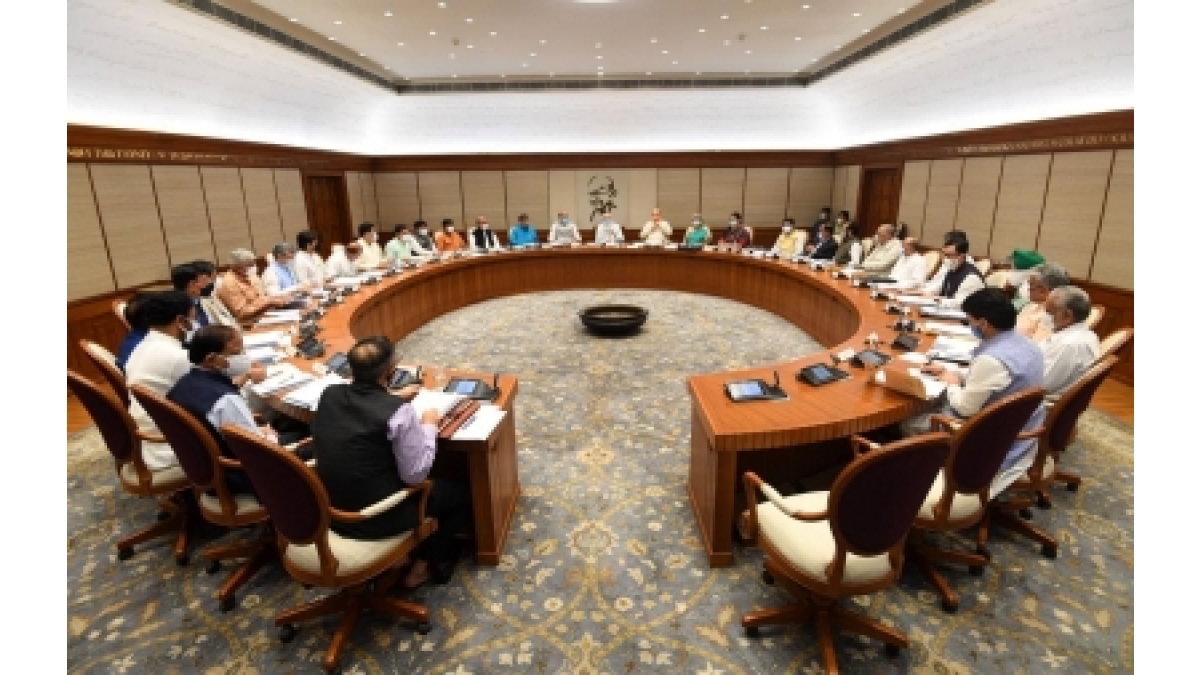The Union Cabinet has adopted a change to the cooperative societies law that will make multi-State cooperative society governance more democratic, transparent, and accountable. The Multi-State Cooperative Societies (Amendment) Bill, 2022, integrates the provisions of the 97th Constitution Amendment, which granted cooperative societies constitutional status and protection, as well as making the freedom to form cooperative societies a basic right (Article 19).

The Multi-State Cooperative Societies (Amendment) Bill, 2022
It aims to improve transparency and accountability while also making conducting business easier. It intends to include provisions from the 97th Constitutional Amendment.
It will improve governance, reform electoral processes, “strengthen” monitoring measures, “improve” Board composition, boost transparency and accountability, increase financial discipline, and enable multi-state cooperative organisations to raise funds.
 Source: Freshers live
Source: Freshers live
The Bill proposes establishing a cooperative election authority, a cooperative information officer, and a cooperative ombudsman to make multi-state cooperative society governance more democratic, transparent, and accountable.
The electoral authority will ensure that elections are fair, free, and timely, which will reduce complaints and malpractices.
The proposed Bill will impose a three-year ban on offenders and will increase “electoral discipline.” The cooperative ombudsman will provide a “organised” procedure for resolving member issues. The Bill proposes appointing a Cooperative Information Officer to “Enhance” transparency by giving members with rapid access to information.
Provisions relating to representation of women and Scheduled Caste/Scheduled Tribe members on the boards of multi-state cooperative societies have been inserted to promote equity and encourage inclusivity,” the source said. “Provisions have been made to bring in co-opted directors with experience in the fields of banking, management, cooperative management, and finance, or with specialisation in any field relating to the objects and activities undertaken by such multi-state cooperative society, in order to promote professional management.”
How Cooperative Societies Work and tackling concerns
Regional disparities in cooperative development: Cooperative structures have flourished only in a few states such as Maharashtra, Gujarat, and Karnataka. Currently, the federal government supports cooperative societies with equity and credit support. As a result, this benefit is concentrated in new states where cooperatives have emerged. Cooperative development regions are already rather well-off states; there is a need to focus on cooperative development in impoverished sections of the country. Membership issues: Inability to maintain active membership, rapid exodus of non-user members, absence of member communication and awareness-raising measures
 Source: Financial Tribune
Source: Financial Tribune
Governance issues: Serious governance deficiencies, especially those relating to the powers and obligations of boards. Cooperatives are not considered economic institutions: A general lack of acknowledgment of cooperatives as economic structures among policymakers and the general public. Inability to attract and retain qualified personnel, resulting in subpar services and low productivity.
Lack of capital formation activities, particularly those aimed at increasing member equity and consequently member ownership. Lack of cost competitiveness as a result of factors such as overstaffing and a general top-down approach to cooperative formation, including tiered structures.
Politicization and excessive government role are mostly the result of loopholes and limiting measures in the Cooperative Acts. Irregular elections allow officeholders to stay in office forever, lowering accountability and increasing corruption.
Rejuvenating Cooperative Societies
As a result, there was a perceived need for major reforms in the running of cooperatives in order to: revitalise the institutions and secure their contribution to the country’s economic development. Serve the members’ and the general public’s interests. Make certain that they have autonomy, democratic functioning, and professional management.

JUDGMENT OF THE SUPREME COURT IN THE CASE OF RAJENDRA N SHAH
Previously, the Gujarat High Court had declared that as “co-operative organisations” are listed under Entry 32 of the State List, the state has the authority to enact laws pertaining to them. According to Article 368(2) of the Constitution, any modification of that status by the Centre would need to be approved by at least half of the state legislatures. Additionally, it went against the fundamental ideals of the federal government and the Constitution. This rendered the 97th Constitutional Amendment ineffective.
The Supreme Court confirmed the Gujarat High Court’s decision but did not completely invalidate Part IXB. By using the Doctrine of Severability and excluding Articles 243ZR and 243ZS, the Court declared Articles 243ZI to 243ZQ to be unconstitutional.
The Supreme Court maintained the Gujarat High Court’s decision but did not overturn Part IXB in its entirety. Using the Doctrine of Severability, the Court declared Articles 243ZI to 243ZQ invalid, leaving out Articles 243ZR and 243ZS. Portion IX B of the Constitution relating to cooperative societies was pronounced invalid by the Supreme Court, whereas part IX B relating to multi-State cooperative societies inside the several States and Union territories of India was declared legitimate.
 Source: Indian Express
Source: Indian Express
The Court also alluded to the Kihoto Hollohan decision, in which the Doctrine of Severability was applied to the Tenth Schedule, rendering Paragraph 7 of the Indian Constitution unlawful. However, the minority ruling called into doubt the independence of Articles 243ZR and 243ZS from the other provisions of PART IXB and deemed the entire PART IXB to be constitutionally unconstitutional.












